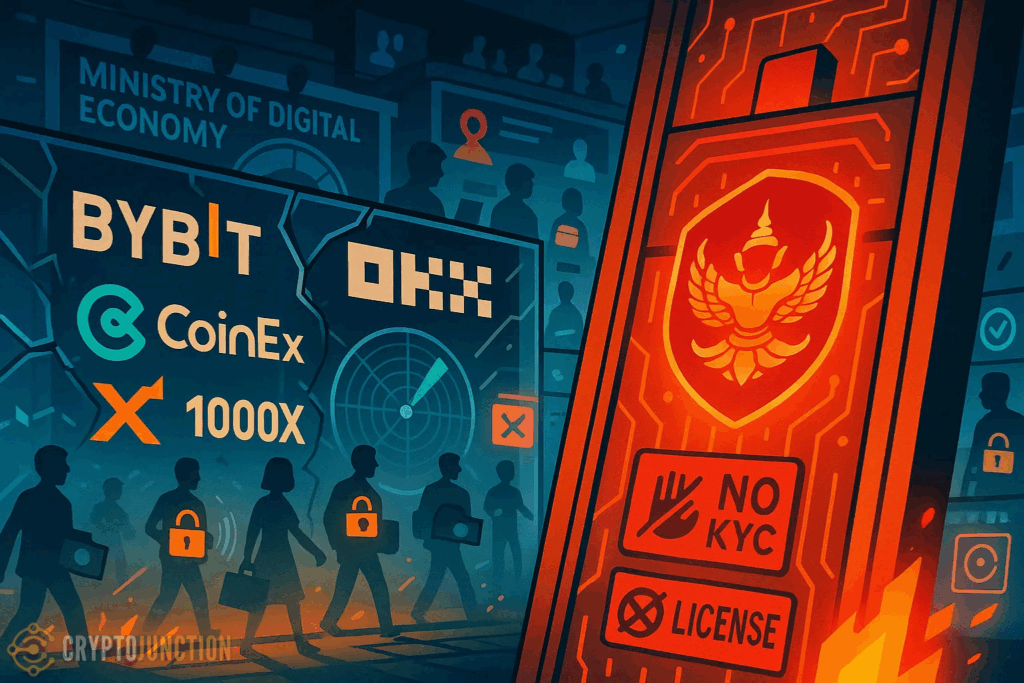In first decision, the Thailand SEC has issued a ban which includes Bybit, OKX, and CoinEx. This ban is also applied to 1000X and XT. The announcement came out on May 30, 2025, with an implementation date of June 28. It is reported that the exchanges were offering their crypto services to local users without the required registration. This action broke national digital asset regulations. As a result, the Thailand SEC blocks access to Bybit, OKX, and others.
This is the most aggressive regulatory action we have seen in Thailand to date. The SEC reported that these platforms did not have licenses. They also did not put in place basic compliance measures like know your customer (KYC) and anti-money laundering (AML) protocols. Also of note is that OKX has been operating without authority since 2021. In addition, they marketed to Thai users and collected fees despite repeated warnings.
The Ministry of Digital Economy and Society will put into effect technical blocks. This action will cut off Thai users’ access to these platforms. In blocking Bybit, OKX, and others, we have given customers a month’s notice to withdraw their funds before full service termination.
Thailand has put into place the Emergency Decree on Digital Asset Businesses B.E. 2561. The amended Technology Crime Prevention Act also forms the basis of its legal action. We see jail time and large fines as penalties for breaking these laws. The aim is to protect investors’ interests. At the same time, it seeks to address financial crime and money laundering gaps.
Thailand Sec Bans Bybit, OKX While Also Pushing Forward State Supported Crypto Projects.
Interestingly, while the SEC is blocking Bybit, OKX, and others, Thailand is not completely against digital assets. Reports also say the government is pushing forward with a $150 million government-backed crypto token program. This move shows the government’s intent to regulate rather than reject crypto innovation.
This shows Thailand’s dual-track strategy: Punish the former while fostering growth of the latter. Additionally, the government has issued crypto-loaded debit cards for tourists. This allows use of crypto for payment, which merchants accept in baht.
Compliance with Thai rules is a must, which is true for all companies’ sizes and global reach. Also, we see this as a chance for local players to take up the trade lost to foreign companies.
With the SEC of Thailand blocking Bybit and OKX, it is clear that the country is on a mission. They aim to become a regulated crypto leader in Southeast Asia. They are putting forward enforcement strategies which support the growth of the crypto space. At the same time, these strategies are very strict against illegal operations.

